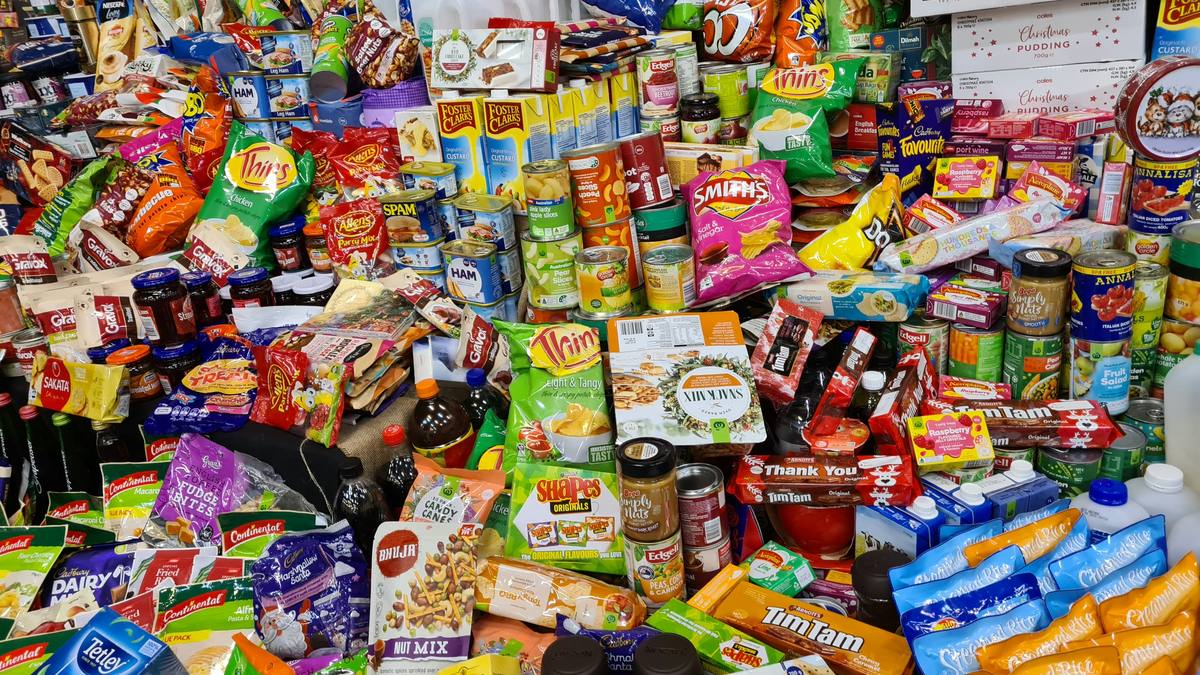Embarking on the Journey of Starting a Food Bank Business
Initiating a food bank business is an admirable endeavor that carries the potential to significantly impact communities by addressing hunger and food insecurity. The journey begins with a well-defined mission that guides all initiatives and activities. A thorough understanding of the community's needs is paramount, as it shapes the services provided. Strategic planning involves location scouting, securing partnerships with local food suppliers, and ensuring compliance with health and safety regulations. Building a robust network of volunteers and fostering relationships with donors are key steps in establishing a solid operational foundation. With passion and dedication, launching a food bank can be both a fulfilling and transformative venture.

Understanding the Challenges Ahead
When considering how to start a food banks business, it's vital to understand the unique challenges this venture entails. First off, securing a steady supply of food donations can be a constant battle. The demand for food assistance is often variable and can spike unexpectedly, putting pressure on your resources. Additionally, navigating the logistics of food storage and distribution requires meticulous planning and execution. Failure to adequately address these challenges from the outset can hinder your ability to fulfill your mission effectively.
Regulatory Compliance is Key
Navigating the maze of government regulations and health codes is another critical aspect when figuring out how to start. Every region has its own set of rules governing food safety and distribution which must be adhered to meticulously. This not only protects your beneficiaries but also shields your operation from legal troubles. Moreover, achieving compliance can significantly enhance your credibility among donors and partners. It's an arduous journey, but understanding and respecting these legal frameworks is essential for long-term success.

Fostering Community Partnerships
One cannot overstate the importance of building strong community partnerships in this line of work. Collaborating with local businesses, farmers, and other food banks can vastly improve your supply chain efficiency. These alliances not only facilitate the procurement of food donations but also help in spreading awareness about your cause. Establishing such networks is time-consuming but undeniably rewarding, as it lays a solid foundation for your operations. This strategy ensures a more sustainable model for sourcing and distributing food effectively.
The Importance of Volunteer Engagement
A successful food bank relies heavily on its volunteer workforce. Recruiting, training, and retaining volunteers are crucial components that demand attention from day one. Volunteers are the backbone of any food bank, performing tasks ranging from sorting donations to managing distribution events. Therefore, creating a positive volunteer experience is imperative for maintaining a motivated team. Implementing structured volunteer programs can lead to higher engagement levels and operational efficiency.

Developing an Effective Business Model
Your business model determines how effectively you can serve those in need while sustaining operations. Identifying diverse revenue streams beyond donations--such as grants, fundraising events, or social enterprises--can provide financial stability. Simultaneously, it's essential to keep overhead costs low without compromising on service quality. Adopting technology for inventory management and donor tracking can streamline operations and reduce waste. A well-thought-out business model is critical for scaling impact sustainably.
Boost campaigns with 250+ editable templates. Save, reuse, and wield design tools for business growth.
Try it for FREE!Marketing Your Mission
In today's digital age, marketing plays a pivotal role in raising awareness and garnering support for your cause. Creating compelling narratives around your mission can resonate with potential donors and volunteers alike. Utilizing social media platforms effectively enables you to reach a wider audience more efficiently than traditional methods. Moreover, storytelling isn't just about attracting external support; it's also about keeping existing stakeholders engaged and informed about your progress. Investing time in crafting these stories can significantly amplify your impact.

Leveraging Technology Solutions
The adoption of technology is no longer optional; it's necessary for optimizing operations within modern food banks. From inventory management systems that prevent wastage to customer relationship tools that enhance donor communication, technology offers numerous benefits. Integrating these solutions helps streamline processes, allowing staff to focus more on strategic tasks rather than administrative duties. Moreover, data gathered through technology can inform better decision-making around resource allocation and program development. Embracing technological advancements is key to improving efficiency and effectiveness.
Making Use of Design Tools like Desygner
In the realm of marketing and branding, first impressions matter immensely--and that's where tools like Desygner come into play. Desygner offers an array of features that help create visually appealing materials without needing professional design skills. Whether it's designing brochures that tell the story of your impact or creating event flyers to rally volunteer support, Desygner simplifies these tasks remarkably. It empowers small teams to produce high-quality visual content swiftly, enhancing their ability to communicate their mission effectively. Leveraging tools like Desygner can elevate your brand's presence significantly in a crowded marketplace.
## The Importance of Starting Strong in Food Bank OperationsStarting off on the right foot is incredibly significant for a food bank business, not merely for its immediate success but for setting a sustainable and impactful trajectory. A well-planned start can serve as the cornerstone, ensuring that the organization is not just another drop in the ocean but a beacon of hope and support for those in need.### Building a Solid FoundationA great beginning ensures that the foundation of your food bank is robust, reliable, and ready to expand. Establishing strong relationships with local suppliers, volunteers, and community leaders from the outset can create an invaluable network of support. This network isn't just beneficial--it's essential. It fosters a sense of community involvement and investment that can propel your efforts forward in unimaginable ways.### Crafting a Positive ImageRight from the word go, how you set up your operations can significantly influence public perception. A food bank that starts with clarity of purpose, transparency in operations, and an inclusive approach to serving the community sets a positive image. This positivity attracts more volunteers, donors, and supporters, creating a virtuous cycle of generosity and assistance that benefits everyone involved.### Efficient Resource ManagementA stellar startup phase for a food bank also means establishing efficient systems for resource management. By starting correctly, you ensure that every donation--be it time, money, or food--gets utilized to its maximum potential. This efficiency not only stretches each dollar further but also maximizes the impact on the community served. It demonstrates respect for contributors' generosity and reinforces their trust in your organization.### Long-Term SustainabilityThe ripple effects of starting correctly are perhaps most felt in the long-term sustainability of your food bank. With solid groundwork, you're better equipped to navigate challenges, adapt to changes in demand or supply, and continuously meet or exceed your community's needs. Your initial efforts can safeguard against common pitfalls that might otherwise derail less prepared initiatives.### Amplifying ImpactLastly, a well-conceived initiation amplifies the impact of your food bank business. When operations are streamlined, partnerships are strong, and resources are managed wisely from the start, you have more capacity to serve. This doesn't just mean feeding more mouths; it means enriching communities, supporting individuals through tough times, and fostering resilience against future hardships.In summary, taking the time to start right isn't just about avoiding mistakes; it's about setting up for exponential success. It's about creating an entity that does more than distribute food--it builds hope, supports communities, and stands as a testament to what compassionate planning can achieve. The difference between merely opening doors and opening pathways to significant positive change lies in how carefully and thoughtfully those initial steps are taken.

Gracefully Concluding Your Journey to Starting a Food Bank Business
In wrapping up our comprehensive guide on launching a Food Bank venture, it's essential to emphasize the culmination of effort, dedication, and the spirit of community service required to make such an endeavor successful. The journey from conceptualization to operational execution embodies not just entrepreneurial spirit but also a deep-seated desire to make a tangible difference in people's lives.
Understanding the landscape of need within your community is crucial. It informs all aspects of your operation, from the types of food you'll prioritize to the logistics of distribution. Engaging with local businesses, farms, and even personal networks can provide a sustainable supply chain that benefits all parties involved. This symbiotic relationship ensures that while you're aiding those in need, you're also contributing positively to the local economy.
Visibility and accessibility are key factors in expanding your outreach and impact. In today's digital age, a strong online presence can significantly enhance your food bank's reach. This includes leveraging social media, maintaining an informative website, and utilizing tools like Desygner for creating engaging marketing materials that resonate with both potential donors and beneficiaries alike.
To ensure longevity and sustainability, consider:
- Developing robust partnerships with local businesses
- Securing ongoing funding via grants and donations
- Maintaining transparency with donors and stakeholders
- Cultivating a strong volunteer base
- Implementing efficient inventory management systems
- Adhering to health and safety regulations
- Utilizing technology for better reach and engagement
- Leveraging tools like Desygner for marketing purposes
As we conclude this guide, remember that starting a food bank is more than just a business venture--it's a commitment to making a lasting impact on your community. For those ready to take their food bank's visual branding and marketing to the next level, signing up at Desygner is an excellent step forward.


